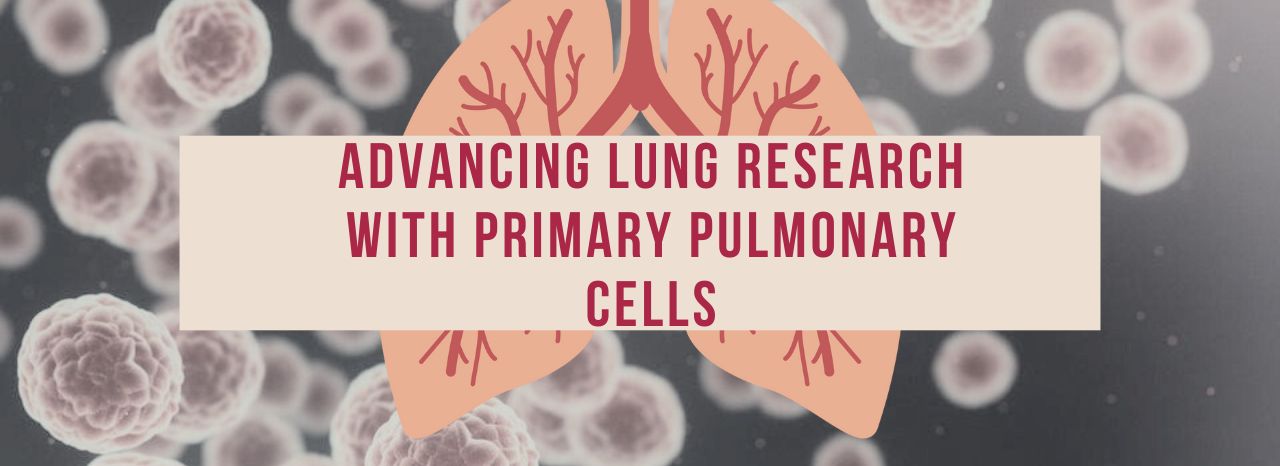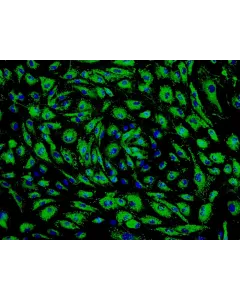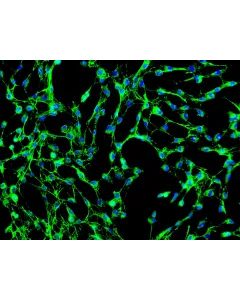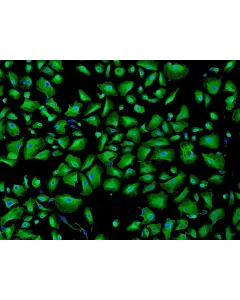

Advancing Lung Research with Primary Pulmonary Cells
In the intricate landscape of pulmonary research, the demand for high-quality, physiologically relevant cell models has never been greater. Whether you're studying the molecular pathways of lung injury or modeling complex pulmonary diseases, primary cells offer the closest reflection of in vivo biology. ScienCell Research Laboratories is proud to offer a comprehensive suite of primary human pulmonary cells—including endothelial cells, epithelial cells, and fibroblasts—designed to elevate your respiratory research.
Pulmonary Microvascular Endothelial Cells (HPMEC, Cat. #3000): The Gatekeepers of the Lung
Pulmonary microvascular endothelial cells (PMEC) are more than just structural components—they are dynamic regulators of the lung’s delicate microenvironment. These cells form a semiselective barrier essential for gas exchange and the precise regulation of fluids, macromolecules, and immune cells between the bloodstream and interstitial compartments.
But the role of PMEC goes far deeper. They produce angiotensin-converting enzyme (ACE), catalyzing the formation of angiotensin—a key peptide in the control of vascular tone and systemic blood pressure. PMEC also participate in mesenchymal signaling and are implicated in a wide array of pathological processes, including:
- Acute lung injury
- Pulmonary hypertension
- Pulmonary edema and embolism
- Lung cancer progression
Our Human Pulmonary Microvascular Endothelial Cells (HPMEC) are isolated directly from human lung tissue and undergo rigorous quality control:
Cryopreserved at Passage One: Delivered frozen for maximum flexibility and reproducibility.
High Viability: Each vial contains >5 x 10⁵ cells in 1 mL.
Identity Verified: Characterized by immunofluorescence using vWF/Factor VIII and CD31 (PECAM).
Clean and Reliable: Free of HIV-1, HBV, HCV, mycoplasma, bacteria, yeast, and fungi.
Guaranteed Performance: Expand for at least 10 population doublings under ScienCell conditions
Pulmonary Fibroblasts (HPF, Cat. #3300): Engines of ECM and Remodeling
Fibroblasts are the architects of lung structure, producing extracellular matrix proteins and mediating repair processes. In disease, however, their unchecked activation contributes to fibrosis and tissue scarring, making them essential targets in pulmonary disease research.
Our human lung fibroblasts are isolated from normal lung tissue and are ideal for studying:
- Fibrogenesis
- Tissue remodeling
- Drug responses in chronic lung diseases
Pulmonary Epithelial Cells (HPAEpiC, Cat. #3200): The Lung’s First Line of Defense
Pulmonary epithelial cells serve as critical barriers and immune sentinels, playing central roles in airway hydration, mucociliary clearance, and response to environmental stimuli. These cells are indispensable for studies of infection, chronic inflammation (like COPD and asthma), and fibrosis.
ScienCell’s primary epithelial cells are optimized for high-fidelity culture, preserving tissue-specific characteristics that standard immortalized lines often lose.
Accelerate Your Research with a Trusted Source
All of ScienCell’s pulmonary cells are supported by comprehensive protocols and optimized media systems to ensure predictable growth and reproducibility. Whether you're modeling vascular responses, dissecting airway defense mechanisms, or probing fibroblast-driven remodeling, our cells give you the biological relevance and consistency your research deserves.


